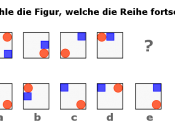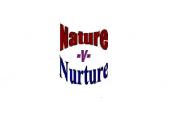For many years, there had been a debate over whether genes alone can determine one's intelligence or whether the environment and training can increase one's intelligence. Some scientists think that people behave as they do according to genetic predispositions. This is known as the "nature" theory of human behavior. Other scientists believe that people think and behave in certain ways because they are taught to do so. This is known as the "nurture" theory of human behavior. Intelligence can be employed to indicate the amount of knowledge available and the rapidity with which new knowledge is acquired; the ability to adapt to new situations and to handle concepts, relationships, and abstract symbols.
Scientists have known for years that traits such as eye color and hair color are determined by specific genes encoded in each human cell. The Nature Theory takes things a step further to say that more abstract traits such as intelligence, personality, aggression, and sexual orientation are also encoded in an individual's DNA.
Therefore, it is argued that intelligence is innate. People are born with it. There are also beliefs that the more folds you have in your brain, the more intelligent you are as your brain contains more neurons. Intelligence can be inherited. This can be used to explain why people say that Jews are smart. According to adoption studies, adopted children have more similar intelligence scores than their adoptive parents who reared them from birth.
Supporters of the Nurture Theory do not deny that genetic tendencies may exist, but believe that they ultimately do not matter. Our behavioral aspects originate only from the environmental factors of our upbringing. Therefore, intelligence can be increased or augmented if one goes through training. The importance of twin studies is evident if we look at the studies objectively, if intelligence...


